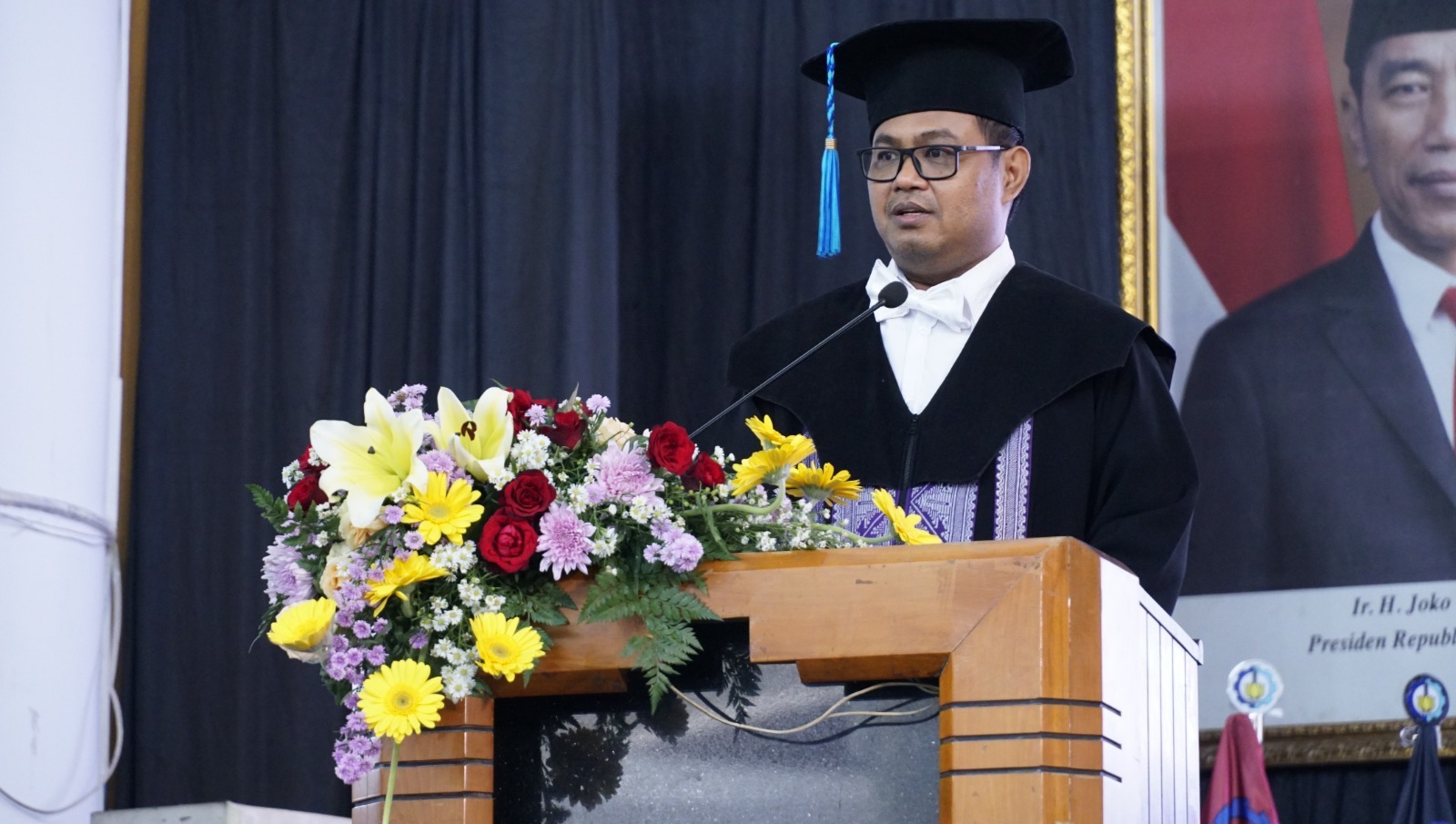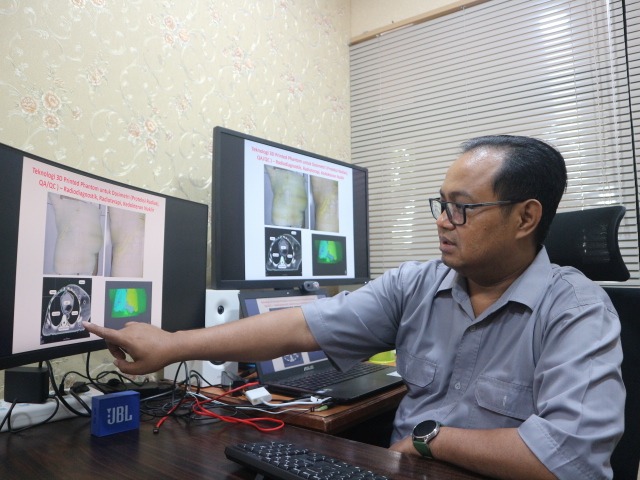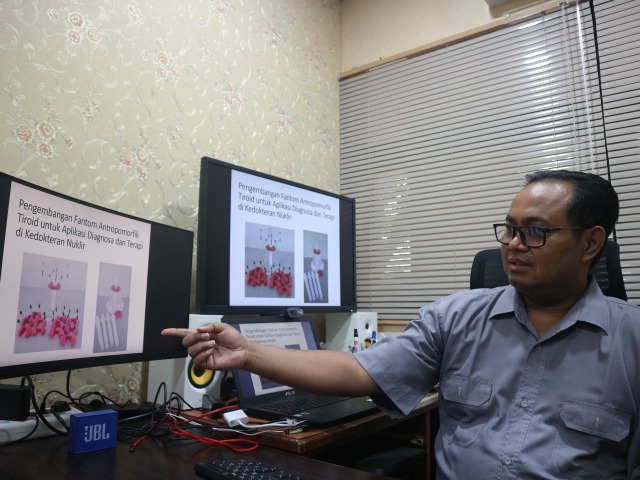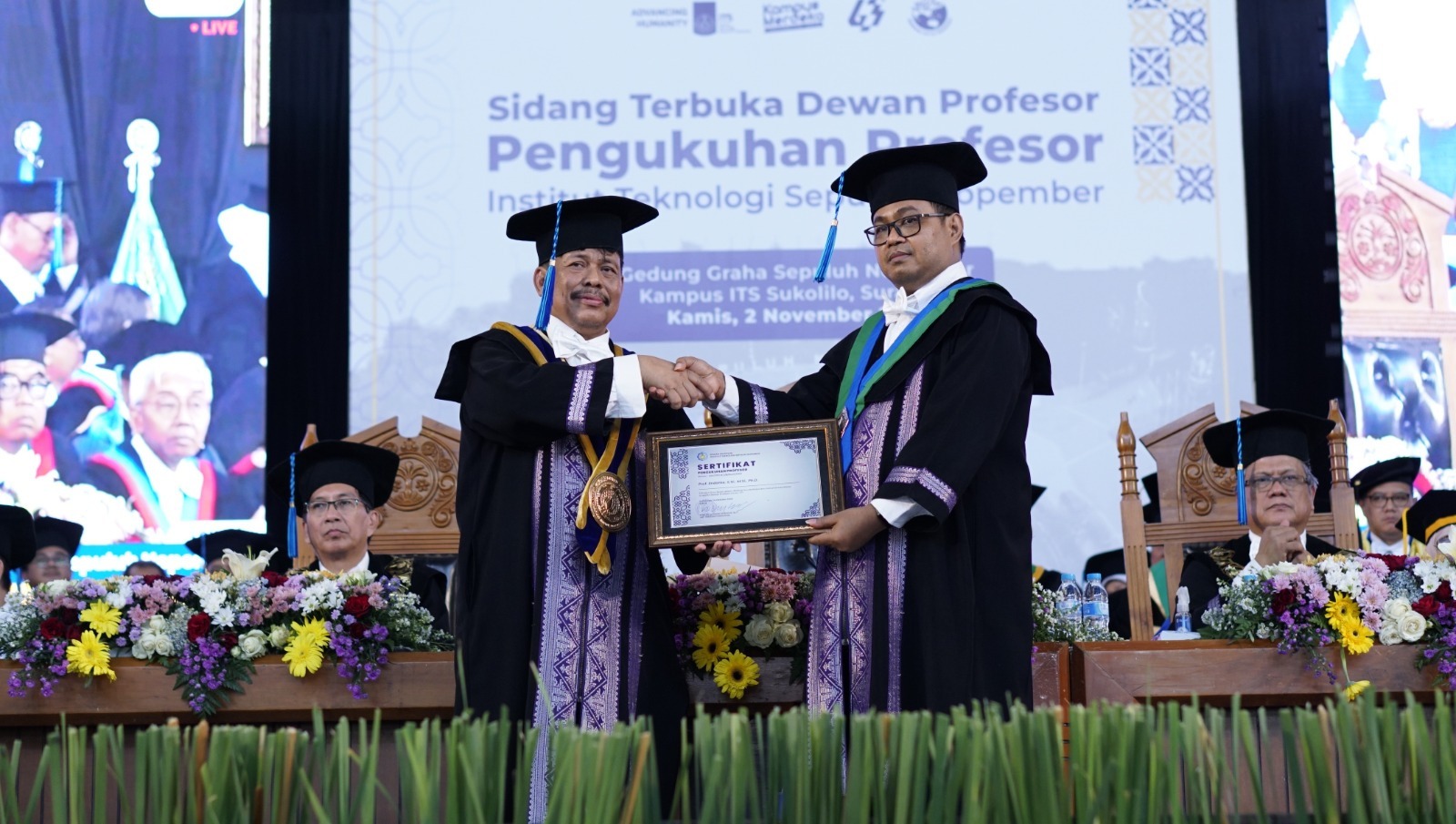Utilization of Diagnostic Modalities Increases, ITS Professor Develops Fantom

Prof. Endarko SSi MSi Ph.D. when delivering his scientific oration on the development of medical fantom in the field of medical applications
ITS Campus, ITS News – The use of diagnostic modalities is one of the efforts of doctors in increasing efficiency and accuracy in diagnosing diseases suffered by patients. Along with the increasing use of diagnostic and therapeutic modalities, the 177th Professor of Institut Teknologi Sepuluh Nopember (ITS) Prof. Endarko SSi MSi Ph.D. seeks to develop phantoms to encourage the independence of quality assurance and quality control of diagnostic modalities in Indonesia.
Fantom or medical mannequin is an artificial model that has the same anatomical and tissue form as real humans. Fantom has an important role as a substitute for humans in diagnostic planning to treatment of patient therapy with ionizing radiation. “Fantom has an important role, so Indonesia must be able to develop fantom independently,” said the 49-year-old lecturer.
Through his scientific oration entitled Fantom Development in Medical Physics Applications for Independent Quality Assurance and Quality Control in Indonesia, Endarko revealed the importance of Fantom to estimate the radiation dose sent to patients. This is because doses that are too high can cause tissue damage, increasing the risk of cancer.

Prof Endarko SSi MSi PhD ketika menunjukkan keakuratan fantom hasil penelitiannya dengan fantom pasien sebenarnya
One of the successful development of Endarko is thyroid fantom which is useful in therapy, diagnosis, and radiation protection in the field of nuclear medicine. In the process of radioactive iodine therapy, phantoms are expected to be an evaluation of safe levels of doses used. “Hopefully it can also be the basis for the preparation of radiation protection in hospitals,” continued the Head of the Medical Physics and Biophysics Laboratory, ITS Physics Department.
Not only that, Endarko also succeeded in developing breast phantoms to assess image quality at dosage levels that are in accordance with the recommendations of the International Atomic Energy Agency (IAEA) and the Nuclear Energy Supervisory Agency (BAPETEN). Thus, the breast phantom is useful as a guarantee of radiotherapy quality in cases of postmastectomy breast cancer or breast removal.

Prof Endarko SSi MSi PhD ketika menunjukkan hasil penelitiannya mengenai fantom tiroid
In addition to developing symptoms in cancer, the Professor of Biophysics and Medical Instrumentation also succeeded in developing children’s medical symptoms that suit the size of Indonesian children. The lack of medical fantom producers in Indonesia has an impact on the unavailability of body fantom that suits the size of Indonesian children. “Even though this can have an impact on the inaccuracy of the dose given to children,” he added.
The lecturer who was born in Klaten added that the risk of exposure to ionizing radiation will increase if exposed to pregnant women. The reason is, the fetus she is carrying will be at risk of experiencing damage to body tissues, abnormalities, to miscarriage. So, if there is an emergency that requires the role of ionizing radiation, a phantom that resembles the real form of pregnant women is needed.

Certificate handover procession to the 177th ITS professor Prof. Endarko SSi MSi Ph.D. (right) by the Chairman of the ITS Board of Professors Prof. Dr. Ir Imam Robandi MT (left)
Looking at some of the important roles of these phantoms, it is concluded that phantoms are an important element in the field of diagnostics and therapy. Therefore, every hospital in Indonesia needs to have these medical phenomena as quality assurance and quality control. Especially those made in house in Indonesia. “The development of fantom in Indonesia is expected to reduce dependence on imported products,” he concluded hopefully. (ITS Public Relations)
Reporter: Mohammad Febryan Khamim
Related News
-
Support from Various Parties Accompanies the Construction of the New ITS Medics Building
ITS Campus, ITS News — The Faculty of Medicine and Health (Medics) of Institut Teknologi Sepuluh Nopember (ITS) continues
December 01, 2023 22:12 -
ITS Builds Faculty of Medicine and Health Building to Produce Quality Doctors
ITS Campus, ITS News — In order to provide quality education and learning facilities in producing quality medical personnel
December 01, 2023 22:12 -
Antasena ITS Successfully Wins Champion Title at SEM 2025
ITS Campus, ITS News — The Institut Teknologi Sepuluh Nopember (ITS) automotive team has once again proves its excellence
December 01, 2023 22:12 -
Successfully Scoring a Hattrick, Sapuangin ITS Wins Urban Concept ICE SEM 2025
ITS Campus, ITS News — The Sapuangin Team of Institut Teknologi Sepuluh Nopember (ITS) has once again made a
December 01, 2023 22:12
